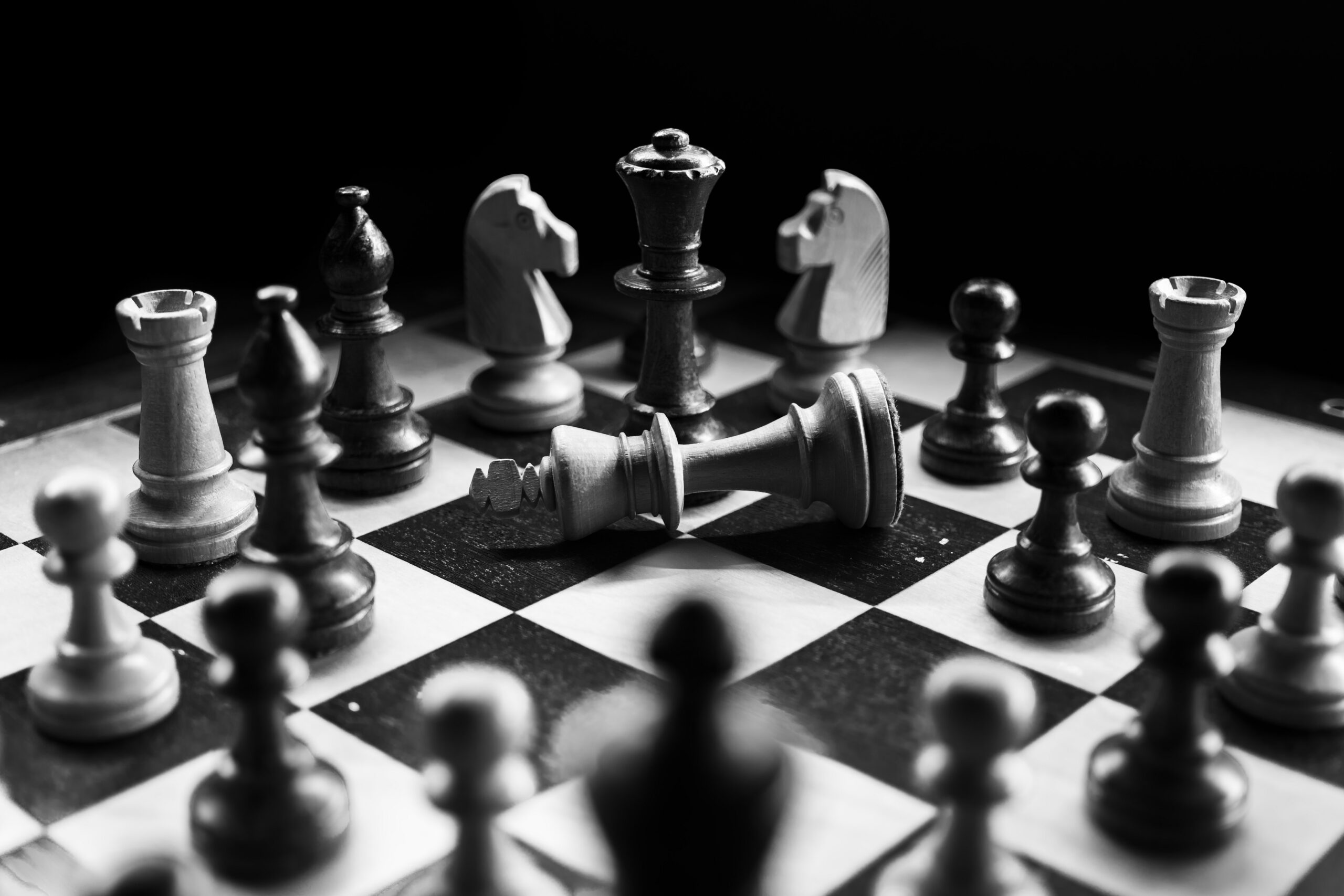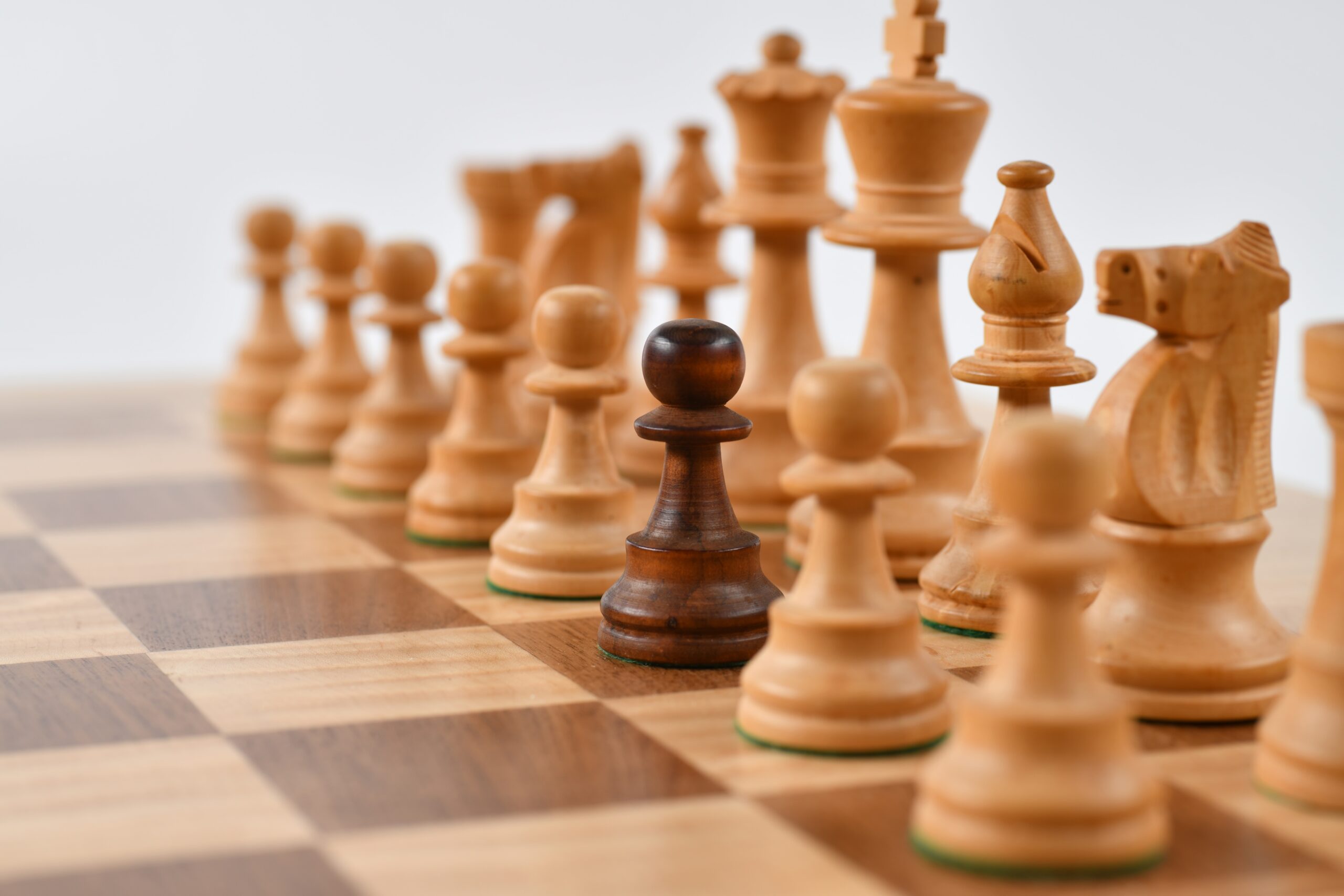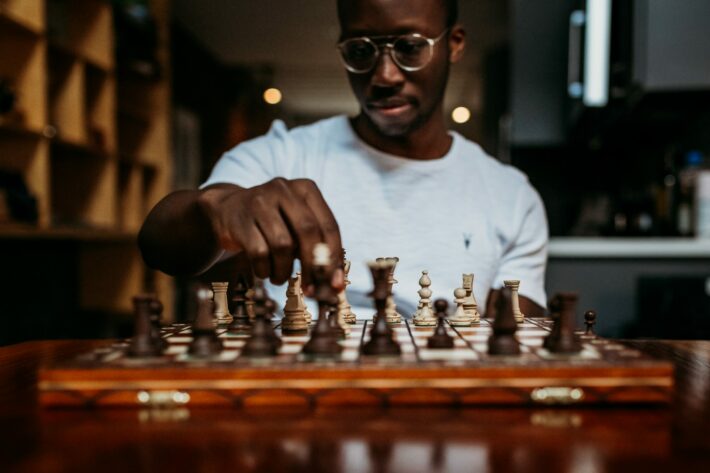Chess is a game that demands unwavering focus and concentration. Without a doubt, the ability to maintain a high level of concentration throughout a game can greatly impact your chess performance. In this article, we will delve into the world of chess concentration, exploring its significance and providing you with practical strategies to enhance your focus on the chessboard.
From understanding the common distractions that can hinder your concentration to discovering effective techniques and exercises, this guide will equip you with the tools you need to elevate your chess game. So, let’s embark on this journey to improve your chess concentration and unlock your true potential.
How does concentration affect chess performance?
Concentration is the backbone of successful chess playing. The ability to stay focused throughout a game enables players to analyze positions deeply, calculate variations accurately, and anticipate opponents’ moves effectively. Maintaining concentration also helps players detect potential threats and opportunities on the board, leading to better decision-making.
A lack of focus, on the other hand, can result in missed opportunities, oversights, and blunders. As concentration is directly linked to the quality of moves and overall performance, developing this skill is crucial for any aspiring chess player seeking to elevate their game to the next level.
What are the common distractions during a chess game?
Chess games can be susceptible to various distractions that affect players’ concentration. External distractions like noise, visual movements, or the presence of spectators can divert a player’s attention from the board.
Internal distractions, such as worries, self-doubt, or frustration from previous moves, can also interfere with optimal focus. Being aware of these common distractions and developing strategies to minimize their impact can significantly improve a player’s ability to stay fully engaged during a game.
How can I train my mind to stay focused?
Training the mind for sustained concentration requires practice and discipline. Mindfulness meditation is a valuable technique that helps players develop heightened awareness and presence at the moment.
By focusing on breathing and redirecting the mind from distractions, players can cultivate a calm and centered mental state, ideal for strategic thinking and analyzing complex positions. Consistent meditation practice gradually enhances a player’s ability to let go of irrelevant thoughts and maintain focus on the game.
Are there specific techniques to improve concentration?
Various concentration-enhancing techniques can be employed by chess players. Visualization, for instance, involves mentally visualizing different game scenarios, moves, and positional possibilities. Regularly practicing visualization sharpens a player’s ability to anticipate moves, plan strategies, and see the board more clearly in their mind’s eye.
Additionally, tactical puzzles and training exercises designed to challenge and engage the mind can improve a player’s ability to concentrate on intricate patterns and calculations during a game.

How does physical exercise impact concentration in chess?
Physical exercise plays a crucial role in optimizing concentration and cognitive function. Engaging in regular physical activity increases blood flow to the brain, promoting better focus and mental alertness.
Exercise also releases endorphins, reducing stress and anxiety, which can hinder concentration during games. Integrating physical exercise into a chess player’s routine can lead to improved mental clarity, creativity, and overall performance on the board.
Is meditation beneficial for enhancing chess concentration?
| Benefits | Description | Example |
|---|---|---|
| Enhances decision-making | Time pressure forces quick thinking and efficient analysis of positions | Making optimal moves within limited time constraints |
| Improves mental agility | Requires fast processing and adaptation to changing game situations | Quickly assessing new positions and adjusting strategies accordingly |
| Develops stress management skills | Playing under time pressure prepares players to handle stress effectively | Maintaining composure and making confident decisions despite the clock ticking |
| Enhances concentration under time constraints | Requires unwavering focus and sustained attention during the game | Staying mentally engaged and avoiding distractions within limited time frames |
| Simulates real-game scenarios | Timed games replicate tournament situations and pressure | Preparing players for competitive environments and time-limited decision-making |
Absolutely! Meditation, especially mindfulness meditation, is highly beneficial for enhancing chess concentration. Mindfulness practices teach players to observe their thoughts without judgment and redirect their focus to the present moment. By training the mind to stay grounded and undistracted, players can better immerse themselves in the game, analyze positions more effectively, and make sound decisions under pressure.
Can breathing exercises help improve focus during games?
Breathing exercises are excellent tools for enhancing focus during chess games. Deep and controlled breathing can help players regulate their physiological and mental state, promoting a sense of calmness and clarity. Integrating breathing exercises before and during games allows players to maintain composure, reduce nervousness, and sustain focus throughout the match.
What role does visualization play in enhancing concentration?
Visualization plays a crucial role in enhancing concentration and mental clarity in chess. By mentally simulating various game scenarios and potential moves, players can improve their ability to visualize the board and analyze complex positions more effectively.
Visualization also aids in developing intuition, as players become more adept at recognizing patterns and tactical opportunities. Consistent practice of visualization techniques refines a player’s concentration skills, resulting in better decision-making and strategic planning during games.
Are there any recommended dietary strategies for better focus?

A well-balanced diet plays a significant role in optimizing focus and cognitive function. Including brain-boosting foods in one’s diet, such as fruits, vegetables, whole grains, lean proteins, and healthy fats, provides essential nutrients that support brain health and enhance mental performance.
Staying hydrated is also vital, as even mild dehydration can negatively impact concentration and cognitive abilities. By nourishing the body and mind with nutritious foods, players can maintain optimal focus and energy levels during chess games.
How does sleep quality affect chess concentration?
Quality sleep is paramount for optimal chess concentration. Adequate and restful sleep allows the brain to recover, consolidate memories, and function at its best. During sleep, the brain strengthens neural connections and processes information, crucial for retaining chess strategies and improving overall performance.
Consistent sleep patterns and creating a conducive sleep environment promote better concentration, mental clarity, and decision-making abilities during games.
Can multitasking hinder concentration in chess?
Multitasking can indeed hinder concentration in chess. While it may seem efficient to juggle multiple tasks simultaneously, dividing attention between different activities can lead to decreased focus and performance on the chessboard.
Engaging in unrelated tasks, such as checking messages or browsing the internet, can disrupt the flow of concentration and compromise decision-making abilities. To optimize chess concentration, it is important to eliminate distractions and dedicate uninterrupted time solely to the game.
How to create a distraction-free environment for playing chess?
Creating a distraction-free environment is crucial for maintaining focus during chess games. Find a quiet and secluded space where interruptions can be minimized. Turn off electronic devices or put them on silent mode to avoid notifications and distractions.
Communicate to others that you need uninterrupted time for your game. Clear your mind from unrelated thoughts and establish a ritual or routine that helps you transition into a focused state. By consciously designing an environment conducive to concentration, you set yourself up for success in chess.
Are there specific training exercises to sharpen concentration?
Several training exercises can sharpen the concentration skills of chess players. One effective exercise is timed puzzles or tactical challenges that require focused problem-solving within a limited timeframe. Playing blitz or rapid chess can also enhance concentration under time pressure.
Additionally, blindfolding chess, where players visualize the board without physical pieces, forces intense concentration and mental imagery. Regularly incorporating these exercises into your chess practice routine will gradually strengthen your ability to maintain unwavering focus during games.
What are the benefits of playing timed chess games for focus?

Playing timed chess games offers numerous benefits for focus and concentration. Time pressure simulates real-game scenarios and demands quick decision-making. It forces players to think on their feet, analyze positions efficiently, and make optimal moves within limited time constraints.
This enhances mental agility, adaptability, and the ability to handle stress during games. Regularly participating in timed games hones concentration skills and prepares players to stay focused even when the clock is ticking.
How to overcome mental fatigue during long tournaments?
Long tournaments can be mentally demanding, leading to mental fatigue and reduced concentration over time. To overcome mental fatigue, it is crucial to prioritize self-care. Take short breaks between games to rest and rejuvenate. Engage in light physical activity or stretching to increase blood flow and refresh the mind.
Stay hydrated and nourished with nutritious snacks to sustain energy levels. Incorporate mental relaxation techniques like deep breathing or visualization to alleviate stress. By managing mental fatigue effectively, players can sustain their concentration and perform at their best throughout the tournament.
In Light Of This Information
Mastering the art of chess concentration is a fundamental aspect of improving chess performance. Developing the ability to stay focused throughout a game, minimizing distractions, and employing concentration-enhancing techniques can significantly impact decision-making, strategic planning, and overall success on the chessboard.
By incorporating mindfulness, visualization, and training exercises into regular practice, players can sharpen their concentration skills and achieve a heightened level of focus. Furthermore, maintaining a healthy lifestyle, including proper nutrition, quality sleep, and physical exercise, supports optimal cognitive function and sustained concentration during games. With dedication, practice, and a mindful approach, chess players can boost their concentration, dominate the board, and elevate their chess game to new heights.




